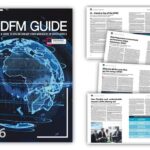I will go out on a limb and state that maintaining a record of advice is a requirement that has come to stay in one form or another, whether in terms of the provisions of the FAIS Act, CoFI or any future market conduct legislation. It is one of the provider obligations that has been firmly established since the implementation of the Financial Advisory and Intermediary Services (FAIS) Act in 2004, which is that a provider must maintain a record of the advice furnished to a client.
Some advisors refer to the client proposal as the record of advice and others refer to a quotation as the record of advice, both of which are only partially correct.
Others refer to the following provisions in section 9 of the General Code of Conduct as the definition of a record of advice:
- A provider must, subject to and in addition to the duties imposed by section 18 of the Act and section 3(2) of this Code, maintain a record of the advice furnished to a client as contemplated in section 8, which record must reflect the basis on which the advice was given, and in particular-
- a brief summary of the information and material on which the advice was based;
- the financial products which were considered;
- the financial product or products recommended with an explanation of why the product or products selected, is or are like to satisfy the client’s identified needs and objectives;
- and provided that such record of advice is only required to be maintained where, to the knowledge of the provider, a transaction or contract in respect of a financial product is concluded by or on behalf of the client as a result of the advice furnished to the client in accordance with section 8.
Even though the title of section 9 of the General Code of Conduct refers to a record of advice, only complying with these provisions without other supporting documentation will fall way short of what a record of advice is.
From most determinations, it appears that the FAIS Ombud expects to see a record of advice as a specific document in a specific format when considering client complaints. It is our interpretation, in accordance with the Financial Services Tribunal decision, that all documentation used during the advice process, and all correspondence during this process, forms part of the record of advice.
According to the Financial Services Tribunal decision, Johannes Mostert and Leoni Landman [FAB 127/2018], all documentation used during the advice process and all correspondence during this process form part of the record of advice. After more than 20 years of market conduct legislation through the FAIS Act, many of the industry stakeholders in the financial services industry still refer to the record of advice as one single document, which often leads to the unnecessary duplication of information and documentation.
This interpretation by the Financial Services Tribunal is further supported by the following provisions in the FAIS Code of Conduct:
When a provider renders a financial service, representations made and information provided to a client by the provider need not be duplicated or repeated to the same client unless material or significant changes affecting that client occur, or the relevant financial service renders it necessary, in which case a disclosure of the changes to the client must be made without delay. [1]
According to my research pertaining to FAIS Ombud determinations, the safest way for any FSP to construct a record of advice would be to maintain the following documents:
- A client service request or agreement, which confirms the financial service that you agree to render to the client as implied in sections 3(1)(d) and 8(4) of the FAIS General Code of Conduct.
- A client proposal which contains the following:
- (2.1) Confirmation of the client’s circumstances, needs, objectives and risk profile, as required in terms of section 8(1)(1)(a) of the General Code of Conduct.
- (2.2) Financial planning recommendations.
- (2.3) Product recommendations.
3. Signed quotation which contains product disclosures as required in terms of section 7 of the General Code of Conduct.
4. Advice agreement which contains the following, as required in terms of section 3(1)(d) and 3(1)(e) of the General Code of Conduct:
- (4.1) A summary of the information on which the advice was based.
- (4.2) Products considered.
- (4.3) Product(s) recommended and the reason(s) why.
Who is accountable for maintaining the record of advice?
It is commonly accepted that the FSP is accountable. However, according to the definition in the FAIS Act, “provider” means an authorised financial services provider, and in terms of the General Code of Conduct, “provider” also includes a representative. Where the General Code of Conduct refers to a provider must, …, maintain a record of the advice, the obligation is not just that of the FSP, it includes an obligation on the representative as well.
Yes, the FSP must ensure that there are resources and procedures in place to manage and oversee the rendering of financial services and compliance with the Act and its subordinate measures, but technically, both the FSP and the representative can be held equally accountable for non-compliance. As more and more responsibilities will be added to FSPs under CoFI, I will not be surprised if more and more FSPs will demand more accountability in this regard from representatives in future.
[1] See section 3(1)(a)(viii) of the FAIS General Code of Conduct













